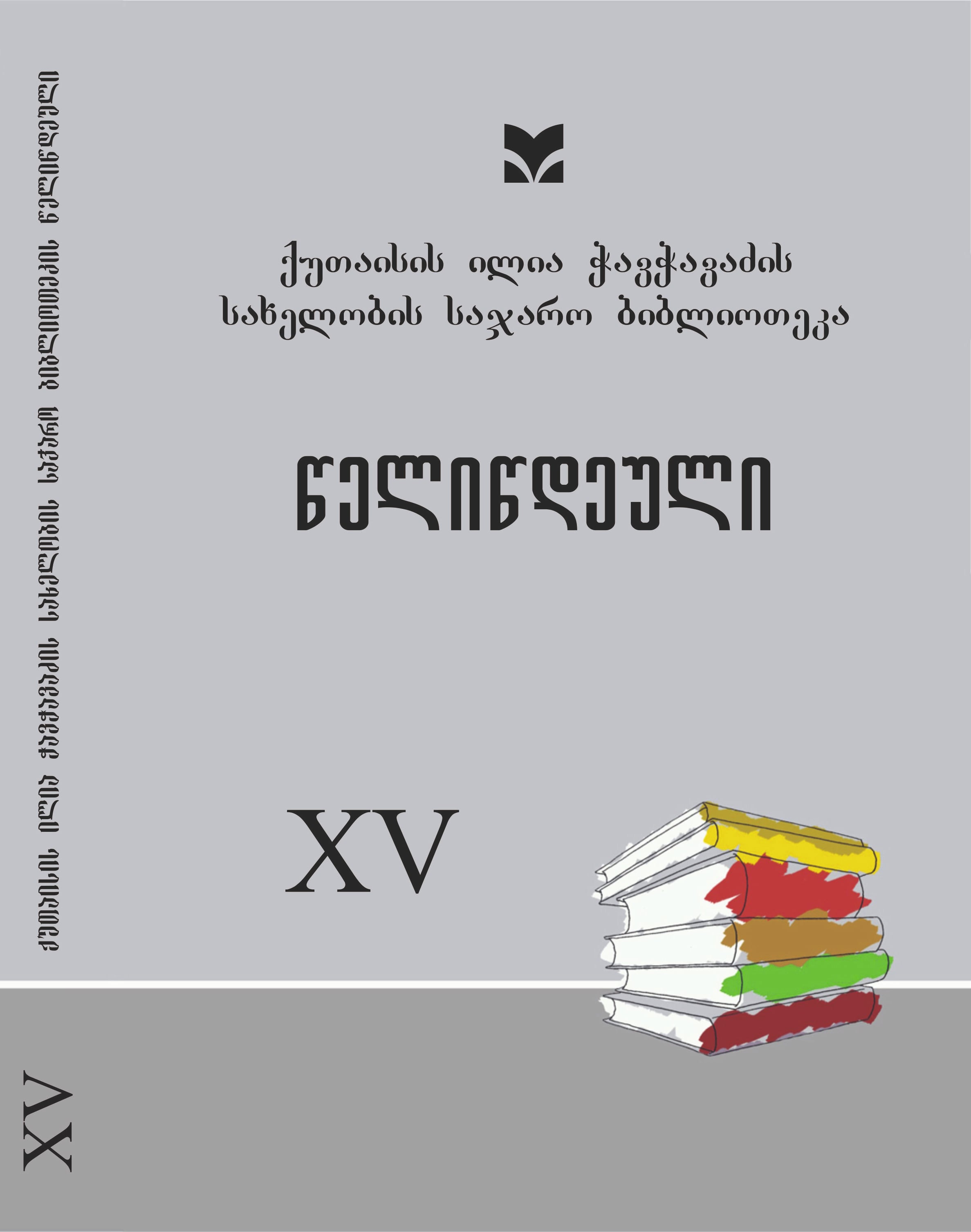Phonetic Varieties of Verb Prefixes in Upper Imeretian
DOI:
https://doi.org/10.61491/yk.15.2023.8051Keywords:
Imeretian dialect, Upper Imeretian speech, verb prepositions, phonetic changesAbstract
Preverbs represent one of the most complex and intriguing categories within verbs, owing to their quantity, function, and the phonetic changes observed across dialects. This article examines cases where variants arise due to phonetic changes (such as assimilation and dissimilation) of the vowel element ‘o’ in preverb constructions. The study is based on texts recorded and published across different periods.
The significance and novelty of this research lie in its chronological examination of dialectal materials, identifying variations in verb prefixes containing the vowel ‘o’ (whether they change uniformly depending on position) through comparison with data from Imeruli and other Georgian dialects.
Based on the chronological analysis of published dialectal texts, it has been confirmed that the verb prefixes in the Georgian literary language - mo-, amo-, gamo-, gadmo-, shemo-, chamo-, tsamo- - manifest phonetic changes in Zemoimeri as follows: mo→ma; mo→me; mo→mu; amo→ame; gamo→gama; gadmo→gadme; gamo→game; shemo→shame; shemo→sheme; chamo→chame; tsamo→tsame. It was observed that there is no phonetic change in mimo- before the verb. In the recorded dialectal texts, speakers often use multiple dialectal variants of preverbs alongside forms from the literary language.
The research indicates that the positions and outcomes of phonetic changes in verbs containing the vowel ‘o’ are similar to those found in Imeruli and other Georgian dialects. The ‘o’ vowel undergoes changes under the influence of the preceding m- object marker, prefixes (e-, i-, u-), and root vowels.




